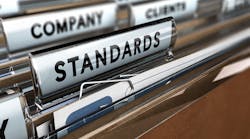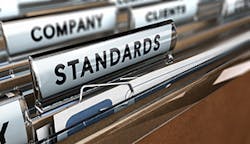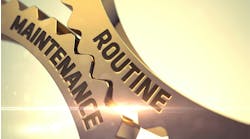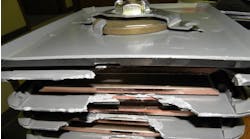Suppose someone asks you, “Do standards matter?” What would your answer be? Here are some possibilities (some, all or none may apply to you):
• Judging by the caliber of work I see, standards clearly don’t matter to some people.
• To me personally? Absolutely!
• In my company, you follow standards or face severe repercussions.
• That depends on the standard.
• It’s nice if you can meet them.
• I use them as a guide to see what I can get away with.
• Standards are created by a bunch of people talking about them at a table. They are just a reference.
• Standards embody the collective wisdom in a given area of application.
Standards come in many varieties, such as:
• Industry standards with the force of law. For example, OSHA takes much of its material directly from NFPA 70 and NFPA 70E. Many municipalities adopt the NEC as the legal standard for electrical work.
• Industry standards without the force of law, but that good engineering practices mandate. Some great examples include the IEEE color series (e.g., the Green Book, Red Book, etc.).
• Affiliation standards. Groups such as NETA publish standards that their members use when planning or performing work. Some affiliation standards are registered with ANSI, some are not.
• Company standards. For example, all electrical drawings will conform to a standard created and maintained by the company.
• Work team standards. In your work group, is there peer pressure toward excellence? In what ways?
• Personal standards. If you have not given this serious thought, set aside some time to do so.
By definition, firms and individuals that don’t follow the standards for their industry do substandard work. The firms eventually go out of business or have to compete on price rather than competence and quality. Individuals who don’t know or follow the standards do pretty much the same thing.
Except for the last two, those in the second group of bulleted items above are technical standards. Non-technical standards also matter in the course of doing business—standards of grooming, dress, speech, and decorum.
Suppose your firm provides technical services, and none of your technicians seems to have heard of shoe polish. How is that substandard dress going to impress a customer?
Then there’s substandard speech. People who go into technical fields are typically not English majors, but substandard speech leaves a bad impression. Here’s a few examples.
Electrician A says: “I pulled the circuit breaker and performed the recommended testing on it using our breaker tester. The breaker is not the problem. I have re-installed the breaker and returned the system to service. Something else is causing the nuisance trip problem, and I recommend looking at your loads next.”
Electrician B says: “I yanked the breaker and it ain’t it. You should look at them loads that is on it. One of them loads is maybe it. Or it maybe is sumthin' else.”
You understand what the first electrician is saying, and he sounds professional. The second electrician speaks substandard English and is so imprecise that you really have no idea what he’s talking about.
• How did that second electrician leave the system? Operating? Not operating? A good verbal report hits on all of the important points.
• How many times did the second electrician use the same pronoun (it)? A hallmark of confusing speech is “pronoun-itis.” In a technical discussion, use of pronouns in place of exact names of things can easily produce very negative outcomes.
• Would you have any confidence that the second electrician knows what he’s doing? Or can read an instruction manual?
Speech isn’t the only non-technical area where substandard “work” can undermine a customer’s confidence in your people. How many times have you seen a company truck with the firm’s name emblazoned on it, and it’s being driven erratically? Maybe the driver is yakking on his cellphone rather than paying attention to the job of driving your company vehicle in a responsible manner.
Decorum is important because your people are ambassadors of your company any time they wear your company emblems or are in any way identifiable to your company. Maybe your crew visits a restaurant while on a job. And they are rude to the waitress. It turns out that her father is the plant controller at a facility where you are planning to bid on a big job. Think you’ll get that job?
Your answer to the opening question was probably along the lines of “Yes, standards matter.” And you were probably thinking of technical standards. Yet, many more standards may affect how an individual or a company is perceived. You need to be aware of these standards and understand why each one matters.
With regard to technical standards, if you believe they matter what have you done about that lately? Take a look at your personal collection of technical standards. Maybe you have your own copy of the NEC; if not, why not? How extensive is your collection, does it include all the standards relevant to your work, how current are the revisions/editions, and how familiar are you with the standards and how to apply them?





